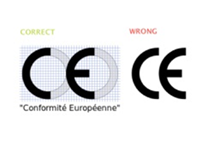As more than 50,000 students prepare to enter third-level education for the first time – and many thousands more return – the National Standards Authority of Ireland (NSAI) is urging those who are moving into rented accommodation to ensure that the property and its facilities meet the minimum health and safety standards.
Landlords have a legal duty to ensure that rented accommodation meets certain minimum physical and safety standards including, but not limited to, the presence of two smoke alarms, a Carbon Monoxide (CO) detector, a fire blanket a and fixed heater.
All of the items above should display the CE Mark, which shows that the product meets the minimum safety requirements as set out under European legislation, and, in the case of CO detectors, should meet the EN 50291 standard.
“Finding appropriate rental accommodation for students will likely prove difficult this year, due to factors beyond their control. We’re asking people to mindful of standards when they do secure a place to stay and, if necessary, to remind landlords of their obligations when it comes to providing a safe place to live,” said Geraldine Larkin, NSAI Chief Executive.
“Remember that all rental accommodation, regardless of location, size or type, should contain two smoke alarms, a CO detector, a fire blanket and fixed heating. All of those items should display the CE Mark and, where applicable, meet the relevant standards,” she added.
Standards affect every aspect of daily life. However, some simple checks are required on occasion to ensure a quality, reliable product or service, as outlined in the five tips below:
- Buy genuine
Only buy electrical products, such as laptops, kettles, toasters, or extension leads that meet the required standards and display the CE Mark. The CE mark should be visible on the product itself or on its packaging. If it’s not there don’t buy it.

Familiarise yourself with what a genuine CE Mark looks like, always buy products from reputable retailers and online outlets and remember if it looks too good to be true, it probably is.
2. Don't overload power outlets
When you're short on sockets, it may be tempting to have your laptop, phone, TV, hairdryer and gaming system all plugged into one cord, but that can overload the circuit and potentially cause a fire. Make sure the extension cord is heavy enough for the intended load and that there are no loose connections. If a cord or plug becomes hot when it is plugged in, it may be overloaded and should be disconnected immediately.
3. Keep heaters away from everything else
Electric blow heaters are a great way to heat a chilly room, but are not meant to dry clothes and they definitely should not be left unattended. Misuse can lead to serious injuries, fatalities or fires. Place the heater where it cannot be knocked over, at least one metre from furniture and flammable materials such as curtains, bedding and paper. Turn it off if you’re heading out for the day or night. Always follow the manufacturer's instructions and again, make sure it displays the CE Mark.
4. Read the instructions
If you are using electrical appliances, make sure you follow the manufacturer's instructions. Don't leave items unattended while in use, for example a laptop on a bed, and keep flammable materials away from cooking and heating devices.
5. Get alarmed
Carbon monoxide is a colourless, odourless, lethal gas and a carbon monoxide detector could save your life. Look for three quality marks on the device; EN 50291, the CE-Mark symbol and an end-of-life indicator. Test your smoke detectors once a week, by pressing the test button until the alarm sounds. Change the batteries once a year, unless it’s a ten-year alarm and NSAI recommends you replace the whole unit every 10 years. Smoke alarms should meet either the Irish standard, I.S. 409, the British standard, BS 5446, or the American standard, ANSI UL 217.
In addition to the above advice, NSAI is advising prospective tenants to read the appropriate legislation in full for more information on their statutory rights. The Housing (Standards for Rented Houses) Regulations 2017 can be read here: http://www.irishstatutebook.ie/eli/2017/si/17/made/en/print
For further information, visit NSAI.ie, like us on Facebook and LinkedIn at NSAI or follow us on Twitter @NSAI_Standards



